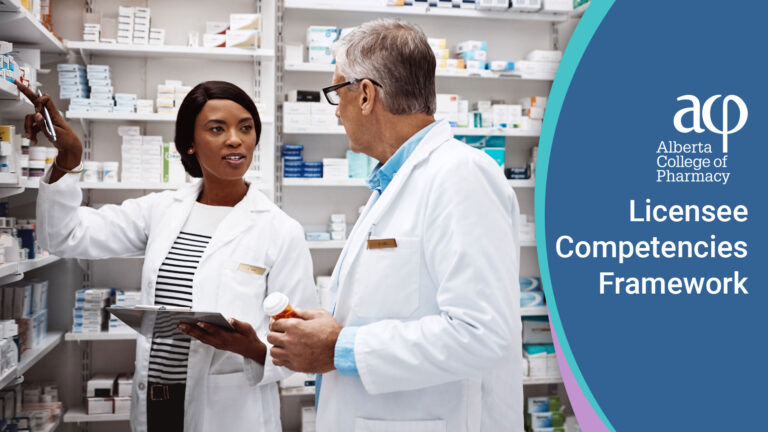
Licensees are responsible for the operation of licensed pharmacies. They also depend on the support of the pharmacy’s proprietor for the necessary facilities and resources to be able to provide safe, quality care to their communities.
One of the competencies identified for licensees in ACP’s Licensee Competencies Framework is that licensees build collaborative environments. This includes collaborating with proprietors to ensure compliance with standards and legislation to support the provision of patient care.
We discussed the relationship that exists between a licensee and proprietors with Edmonton community pharmacy licensee Dimitri Kachenyuk and proprietor’s representative Marco Casagrande.
What are some of the qualities that make for an effective licensee?

Dimitri
“I believe organization is extremely important. When managing the pharmacy as a licensee, we’re living in an ever-changing pharmacy landscape. What is extremely important is to have the necessary policies and procedures in place to ensure patient safety. This is where adaptability also comes into play. Because of this ever-changing landscape, the needs of our patients and the needs of the public in general are continuously changing, and a strong licensee should be able to pivot and make the necessary changes. Finally, strong communication skills not only improve team collaboration, but also significantly improve direct patient care, especially when managing the pharmacy team members.”
What are some of the qualities that make for an effective proprietor’s representative?

Marco
“I think empathy. You want to make sure you understand what it takes to be a pharmacist and how you can help. So, I spend a lot of time really listening to the pharmacist and trying to understand what their practice involves. What is it that we can provide for you, and what are the tools that the company can provide? And me, as the proprietor’s representative, what can I do to support you in that?”
Describe the relationship between the licensee and the proprietor’s representative.
Dimitri
“It really is one of mutual respect and understanding of each other’s strengths, responsibilities, and knowledge. The big part of that relationship is communication. At our pharmacy, we keep a continuous open line of communication between the licensee and the proprietor’s representative to ensure that we can solve any issues that arise.
The other big part is accessibility. It is important for a licensee to know that they’re able to reach out and get access to their proprietor to address urgent matters. The proprietor also needs to make an effort to be visible and be present at the pharmacy at certain times, to be able to know if the licensee is effective in their role, and is effectively managing the pharmacy.”
Why is it so important that the licensee and the proprietor’s representative understand each other’s roles?
Marco
“We both come at it from different points of view. As a non pharmacist, I can’t walk a day in the licensee’s shoes, so I need to have a good understanding of what it takes to do that job. It’s very important that we have a mutual relationship and an understanding of how each of us brings value to making sure that we’re living to the standards of the college, we’re delivering on patient care, and we’re delivering on maximum service to the community. If you don’t have that understanding of how each other works and have the mutual respect for how that licensee functions and what’s important to their practice, you can never truly deliver on the needs for the community.”




